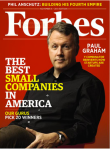This Bill Moyers broadcast is from 2014
Mike Lofgren is a Washington insider. He was a Republican congressional staff member for 28 years, including 16 years as a senior analyst on the House and Senate budget committees.
 He has written a book, THE DEEP STATE: The Fall of the Constitution and the Rise of a Shadow Government, about governmental and private institutions that operate above the law, and independently of the will of the citizens, and how they interlock in ways that mutually reinforce their power.
He has written a book, THE DEEP STATE: The Fall of the Constitution and the Rise of a Shadow Government, about governmental and private institutions that operate above the law, and independently of the will of the citizens, and how they interlock in ways that mutually reinforce their power.
The Deep State includes the bankers who were prosecuted for financial fraud because they were “too big to fail” and CIA torturers who were not prosecuted or dismissed because that would demoralize the agency.
It is the force that makes the government engage in bank bailouts, warrant-less surveillance and undeclared wars. It is the force that has made the American public accept endless war and economic stagnation as normal. It is the explanation of why partisan gridlock and financial sequesters never affect the availability of money to subsidize foreign military forces.
Lofgren’s Deep State includes President Eisenhower’s “military industrial complex”, the FBI, CIA and NSA and their supposed overseers in Congress and the federal courts, Wall Street and its supposed overseers in the Treasury and Justice departments, and Silicon Valley.
They work together, and have revolving doors through which people can move from one to another—for example, General David Petreaus, after his retirement from the military, to a seven-figure job at KKR, a Wall Street private equity form.
None of this is the result of a conscious conspiracy, Lofgren wrote. It is a natural evolution of power without accountability, and the “group-think” of people who never have their assumptions questioned.





























